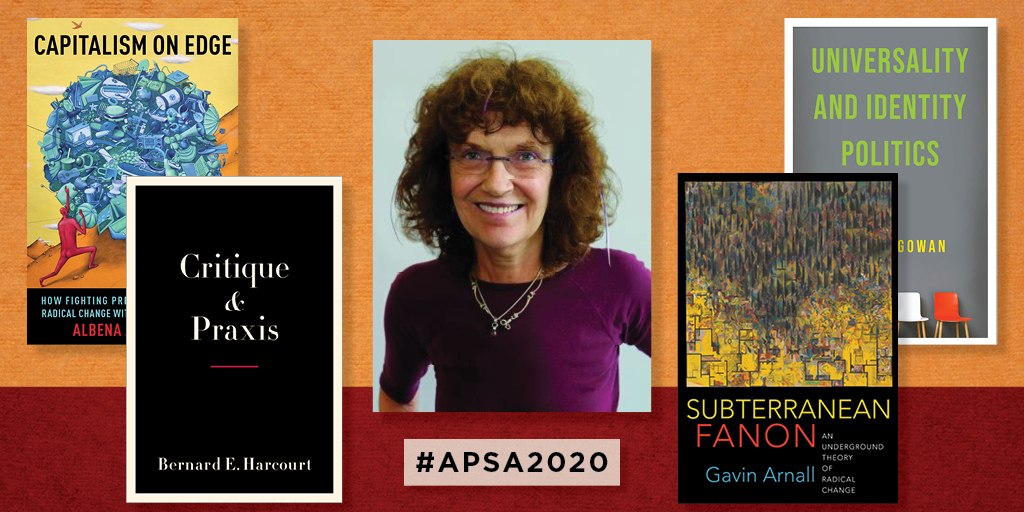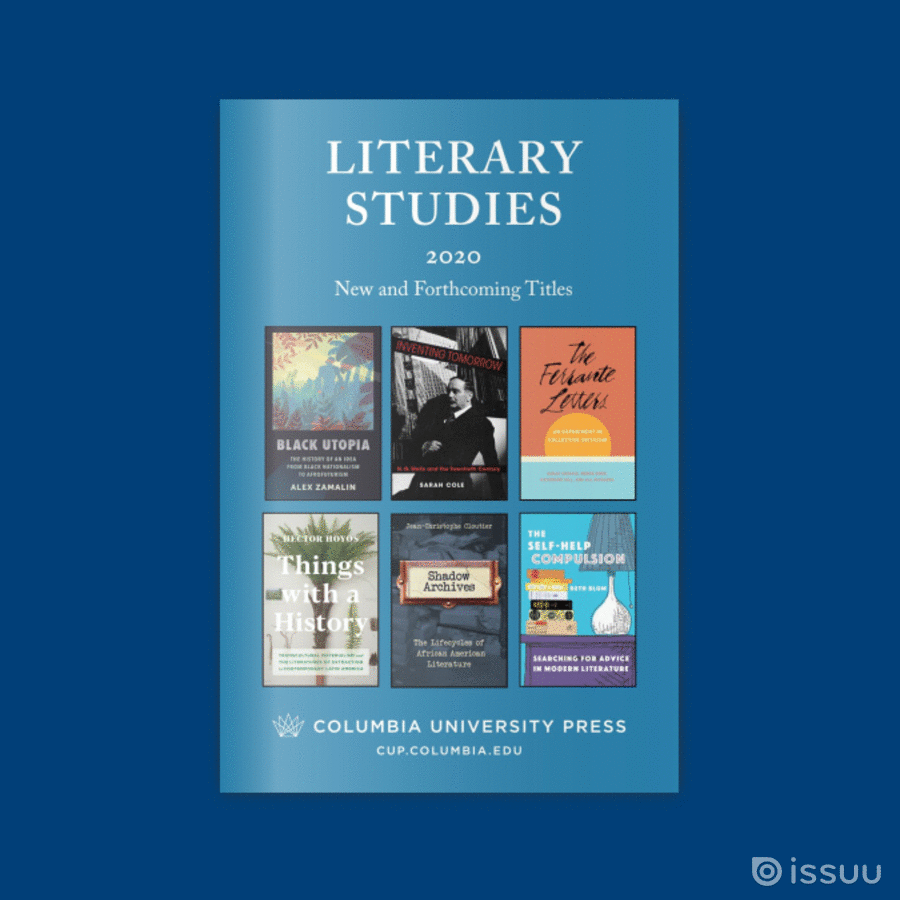Browse Books in Political Theory with Wendy Lochner

Hi, I’m Wendy Lochner, the editor responsible for political theory and political philosophy. By now you know that we are participating in the virtual APSA meeting, introducing new books, posting new author blogs and videos, and offering discounts and book giveaways. My colleagues Caelyn Cobb and Stephen Wesley have told you about their exciting new books in global and American politics, and I’m pleased to share some of our new books in theory with you. Theory too can be American and global, and we have plenty of both.
Our list has always been very strong in critical theory, and this year we are proud to introduce Bernard Harcourt’s Critique and Praxis. In this culmination of Harcourt’s years writing on critical theory from the Frankfurt School as well as the French tradition, he addresses the question, is critical theory still as relevant today as it was in the 1920s and 1930s? He argues that it has lost its way, no longer infused with a passion for praxis, and must return to its mission of changing the world and restoring individual political action to its center. As Antonio Negri says about the book, “If before the problem consisted in responding to ‘What is to be done?,’ today the question is, ‘What more am I to do?’ Harcourt thus turns political philosophy into a manifesto of ethical engagement.”
Amy Allen, editor of the Columbia series New Directions in Political Theory, gives us tools to accomplish this aim in Critique on the Couch by helping us understand both social and individual subjectivities. Psychoanalysis played an integral role in early critical theory and can do so again by contributing analyses of creativity, progress, and self-transformation. Mari Ruti says, “At a moment in intellectual history when antitheory forces proclaim the demise of both critical theory and psychoanalysis, Allen shows that the intersection of these fields furnishes invaluable resources for analyzing the contours of subjectivity, relationality, politics, and social change.”
Frantz Fanon is essential to any understanding of colonialism, racism, state violence, and the persistence of capitalism. Gavin Arnall shows us a new, more complex Fanon in Subterranean Fanon. Drawing on the vast French archive, only recently made available, as well as his published works, Arnall reveals that an explosive underground theory of transformation coexists alongside his well-known dialectics. As Achille Mbembe notes, “This unprecedented work of intellectual inquiry is one of the most comprehensive, consistent, and cogently argued books on Frantz Fanon. It will reset the terms of further debates on Fanon’s multiple legacies.”
Todd McGowan, author of Capitalism and Desire, enters a charged debate in Universality and Identity Politics. Far from a form of totalitarianism that elides difference, as proponents of identity politics claim, he demonstrates that the great political ideas and movements of the modern world have always been founded on a promise of emancipation for all. “More than timely, this book writes to the moment,” says Joan Copjec.
Closer to home, editor Eric Thomas Weber gives us John Dewey’s most powerful writings on social justice, civil liberties, and racial, class, and gender inequalities in America’s Public Philosopher. A progressive thinker whose deep commitment to democracy led him to courageous stances on the issues of his time, he offers a model of intellectual and moral leadership that “speaks to America and the world today,” as John Shook notes.
I invite you to browse our catalog, where you will find many more great books on a wide variety of topics. For the duration of the virtual conference, and for thirty days afterward, you can use the code APSA20 for a 20 percent discount on any of our conference titles. Thanks so much for your support!
Save 20% on this book and any APSA display title when you use coupon code APSA20 at checkout.
Categories:American Political Science AssociationBook ExcerptCritical TheoryEventsPhilosophyPoliticsVirtual Exhibits
Tags:America's Public PhilosopherAmy AllenAPSAAPSA 2020Bernard HarcourtCritique and PraxisCritique on the CouchEric Thomas WeberGavin ArnallJohn DeweySubterranean FanonTodd McGowanUniversality and Identity PoliticsWendy Lochner









